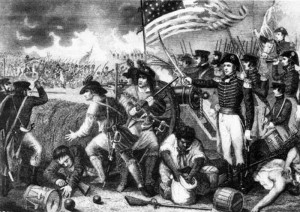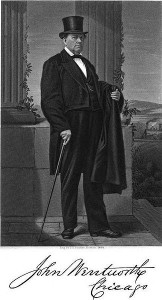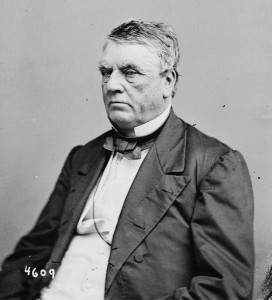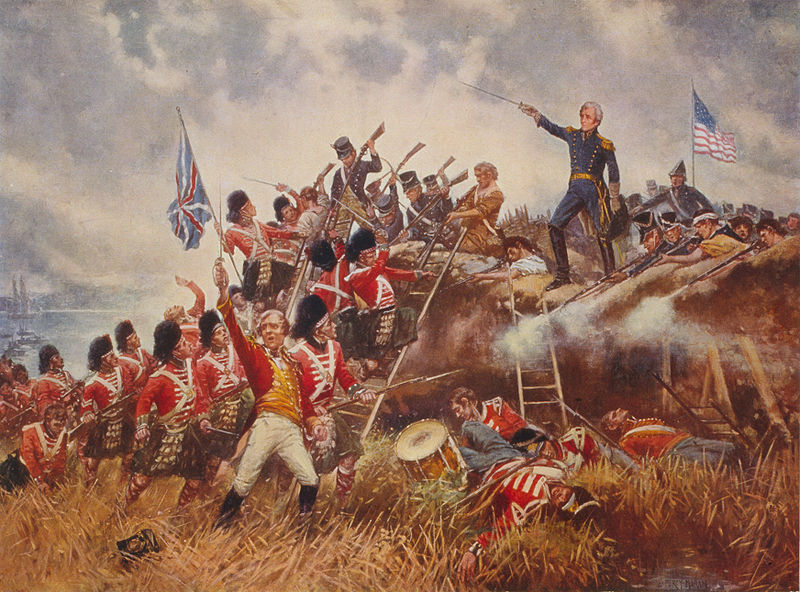While More Southern States Get Ready to Secede
It seems that many northern cities and states in 1861 were intensifying their celebrations of the American victory at the Battle of New Orleans. From The New-York Times January 8, 1861:
THE EIGHTH OF JANUARY IN CHICAGO.
CHICAGO, Monday, Jan. 7.
Mayor WENTWORTH has issued a proclamation recommending that business he suspended on the 8th of January; and that the people congregate at such places as may seem best, to adopt necessary measures to declare their attachment to the Federal Union. He recommends that the military companies take such steps as they deem due to the memory of Gen. JACKSON and the gallantry of ANDERSON.
At sunrise thirty-three guns will be fired for the Union; at noon, fifty-six, in honor of Major ANDERSON, and at sunset, seventy-eight for ANDREW JACKSON. During this salute the bells will be tolled, not so much in consequence of the loss of Gen. JACKSON, as in consequence of the absence of his patriotism and courage in the General Government.
A movement is also on foot for a sword for Major ANDERSON.
As far as the number of guns John Wentworth wanted fired: I understand the 33 states in the Union. Jackson was 78 when he died. Anderson was 56 in January 1861. If I were Anderson I’d be a bit concerned.
The Times reported on announced military salutes in Auburn, New York and in the state of Massachusetts. In New York City there were commemorations at Tammany Hall and at the St. Nicholas Hotel. The Times article on the affair at the St. Nicholas (New York Times Archive) included a letter of regret from a pro-Union Virginian, John Botts. This letter pays tribute to Jackson’s strong unionist policies – policies that pro-Union people apparently wanted to celebrate and were hoping would be emulated by the federal government in 1861. From The New-York Times January 9, 1861:
RICHMOND, Saturday, Jan. 5, 1861.
DEAR SIR: I regret very much that it will not be in my power to accept the invitation of the Committee to attend the ball to be given by the proprietors of the St. Nicholas Hotel on the anniversary of the battle of New-Orleans — an event that terminated the second war of Independence and brought its chief actor conspicuously before the country and the world, and finally elevated him to the highest office in the gift of a free people, but whose real value I had never fairly estimated until the present crisis has been brought upon the country.
Opposed as I was to him, and to his Administration from first to last, I take a pride in doing justice to his patriotism, now that he is gone, by offering as a sentiment:
“The memory of ANDREW JACKSON, who, when his country was imperiled by domestic foes, swore ‘by the Eternal the Union must and shall be preserved,’ and before the Eternal made his promise good,”
I am, respectfully,
Your obedient servant,
JNO. M. BOTTS. …
The Times published its take on St. Hickory’s Day. The editorial included the following (The New-York Times January 8 1861):
New-York and New-Orleans meet upon common and fraternal ground to-day. Their mutual cannon and trumpets belch and bray in honor of a common hero. The proverbially fair women and brave men of the Crescent City, dance in harmony with the equally brave and fair of the Empire City, in commemoration of the same illustrious day. And there is no doubt that the patriotic pulse of both cities and both sections would beat stronger and steadier, would they but devote this day to the wise contemplation of the spirit and character of the stern and Union-loving St. Hickory.
The people of New Orleans probably were unimpressed (The New-York Times January 8, 1861):
SECESSION FEELING AT NEW-ORLEANS.
NEW-ORLEANS, Monday, Jan. 7.
The secession ticket is triumphant. All the Senatorial delegates, and all but four on the Representative ticket, are elected. The city has been carried by over 500 majority.
Seven Score and Ten reported on a pro-Union speech John Botts delivered during the 1860 presidential campaign. Botts is staying consistent.




